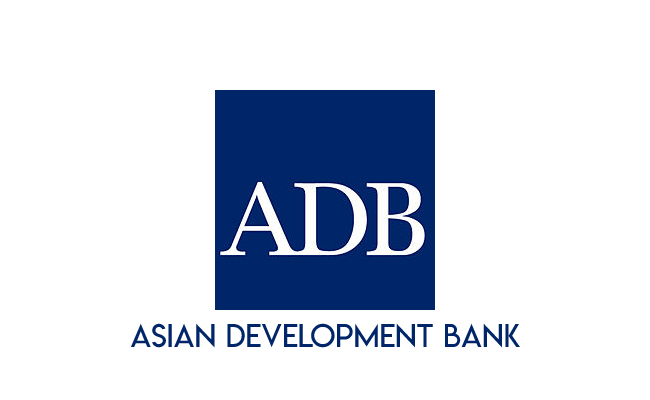A version of this article first appeared on sister publication, AsianInvestor.
Last year was always going to be a hard act to follow in India’s private equity space, but institutional investors believe that it will only continue to grow – albeit at a slower pace – as the market matures, particularly in late-stage ventures and sectors such as technology and healthcare.
Despite a slowdown in activity during the second half of this year, there has been growth in the number of buyouts and later-stage transactions, said Naman Bansal, an associate partner at Bain & Company’s New Delhi office who co-authored the firm’s India Private Equity Report 2022.
“The overall numbers mask what’s happening underneath,” he told AsianInvestor. “If you slice the numbers by early-stage or venture capital investments versus larger buyout investments, you’ll see that the decline is actually more in the VC (venture capital) and early-stage investments.
Even though VC investment had slowed, it was still higher than in the years leading up to the outlier performance of 2021, he said. According to the report publshed in June, there had been 20% fewer deals year-to-date compared to 2021’s run rate of 130 deals every month. Average VC cheque sizes also declined from $25 million to $20 million.
“If you look at the buyouts and more mature, later-stage transactions, they’re actually probably even growing, especially in sectors like IT, IT-enabled services and tech services. These are not start-ups – these are well established companies.”
However, he noted that the PE boom of 2021 was likely to remain unmatched. Even though VC investment had slowed, it was still higher than in the years leading up to the outlier performance of 2021, he said.
Last year, more than 2,000 deals closed – not far short of the total for the two previous years combined, according to the report. Venture capital and growth equity investment soared almost fourfold from 2020 to reach $38.5 billion. And the value of exits quadruped to $36 billion.
Late-stage appeal
The asset class in India has attracted overseas pensions such as CPP Investments and Ontario Teachers’ Pension Plan, both of which have their eye on late-stage ventures.
Ben Chan executive managing director for Asia-Pacific at Ontario Teachers’ told AsianInvestor that it was not pursuing early-stage venture investments in the country, but instead focusing on mature businesses, late-stage and growth equity opportunities.
Healthcare in particular has been a draw for the pension fund. “We were pleased to make our first control transaction in India earlier this year when we reached an agreement to acquire Sahyadri Hospitals,” Chan said.
The fund did not disclose the size of the deal, which it announced in August, but local media outlets estimate that the hospital chain is worth at least 25 billion rupees ($305 million).
Read also: India’s markets a priority target for Ontario Teachers’ and CDPQ
Prakul Kaushiva, managing director of private equity at Toronto-headquartered pension fund manager CPP Investments, also pointed to a proliferation of larger transactions, telling AsianInvestor: “Deal sizes continue to increase. They did go up meaningfully in the last couple of years, but this has been a secular, steady increase that the market has seen over time.”
CPP Investments says its interests in India are very wide-ranging, with Kaushiva telling AsianInvestor: “Within private equity, we’re broadly sector-agnostic, and we like to evaluate opportunities across the landscape. Having said all of that, historically, we’ve spent time on export-oriented businesses, where India has been strong traditionally, such as IT services.”
The fund also has exposure to “other large sectors of the economy, like financials, and more recently in the tech sector,” he said. “Beyond these, we’ve also looked at opportunities across healthcare, consumer and industrials.”
The technology industry overall remained strong and would remain a focus area for CPP Investments, he added.
“The technology services industry was invented more than 25 years ago,” he said. “It’s still thriving, and it’s growing, and there’s a lot of investing interest behind it. Beyond services, you’re seeing adoption of technology across various sectors, and this is driving disruptive and transformative business opportunities. We’re certainly seeing opportunities across the [Indian] landscape.”
Market maturity
More generally, investors are increasingly drawn to India by the country’s PE market maturity, which has developed on several fronts.
Kaushiva said he had seen signs of increased market maturity in recent years, manifested in a growing diversity of participants, transaction types and exit opportunities.
“The market used to be largely minority transactions-focused, and yes, today you still do see a lot of minority transactions. But the range of transactions also includes significant minority transactions, and also an increasing number of control and large-ticket buyout transactions. While the market is still evolving, it’s moving towards the full spectrum of transactions that you see in more mature markets,” he said.
On the exit front, he has observed more activity in the secondary market, with PE funds realising partial and full exits in the private market.
“IPO exits obviously remain subject to market appetite, and overall market depth is evolving as well, but India has now seen multiple sponsor-owned companies list successfully,” he said. “This will take time to play out, but even a snapshot view of today relative to, say, 10 years ago shows a dramatically different market landscape.”
Bain & Company’s Bansal said that PE in India has become more friendly for PE investors as more trust has been built between founders and investors. “Initially there was a lot of hesitancy because PE was new – there was always this noise that PEs will come in and push the founders away and stuff like that. Over time, those relationships have deepened and that’s better now.”
Tech ecosystem thrives
Arun Natarajan, founder of Chennai-based private company analysis firm Venture Intelligence, told AsianInvestor that growth in major transactions was likely to remain robust in particular industries such as tech and healthcare.
Both he and Bansal singled out software-as-a-service as a promising PE opportunity, given India’s strong tech credentials, accelerated digital transformation, its huge domestic market and its companies’ ability to service a global clientele.
Bansal said: “Tech services started with the larger IT companies like Tata Consultancy Services and Infosys many years ago, but now so many smaller companies are coming in, providing specific niche services, and the demand for those kinds of services just continues to grow.”
Natarajan echoed that sentiment, saying that software-as-a-service played to India’s strengths because Indian companies could deliver such services internationally.
E-commerce would also continue to flourish, Natarajan said, as Indian consumers – particularly the country’s burgeoning middle class – had become accustomed to the convenience it offered, which he said would persist in the post-Covid era.
Healthcare has also had increased interest from the PE community, driven partly by Covid, but more secularly by India’s well established pharmaceutical industry and large pool of medical and scientific expertise.
“The macro fundamentals in India support healthcare investments,” Bansal said, pointing out that the specialty hospital segment was attracting greater attention from PE investors as a “huge wave” of interest in the diagnostics sector had waned following the easing of the pandemic.
¬ Haymarket Media Limited. All rights reserved.



































